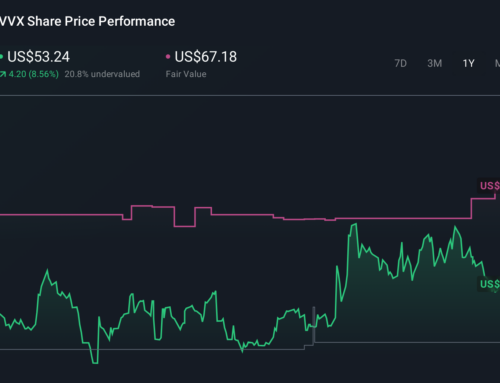Nigerian Gov Passes Law Recognizing Bitcoin As A Security
April 30, 2025
Last month, President Tinubu signed the Investment and Securities Act (ISA) 2025 into law, officially recognizing Bitcoin and other digital assets as securities.
Despite Nigeria consistently ranking within the top nations globally for Bitcoin adoption and P2P volumes, according to Chainalaysis’ reports, one thing has remained consistent throughout Bitcoin’s existence as an asset in the country: the lack of laws on the books recognizing and governing digital assets such as Bitcoin—until now.
This new development marks the first time Nigerian regulators have officially recognized Bitcoin, albeit as a security, which some would consider a misclassification.
Nevertheless, this brings much-needed regulatory clarity for the digital assets ecosystem and will usher in a new paradigm for the possibilities, innovation, and investments to thrive in the space.
The Investment and Securities Act (ISA) 2025
On March 29, the Nigerian government signed into law the Investments and Securities Act (ISA) 2025 as part of its planned rollout of sweeping capital markets reform.
The Act repeals the previous 2007 Investments and Securities Act No. 29, which governs the Nigerian Securities and Exchange Commission (SEC), to update the regulatory framework governing capital markets in Nigeria and address current economic realities and long-standing challenges, and will now govern the Nigerian SEC.
In a statement, the Nigerian SEC Director-General, Dr. Emomotimi Agama, highlighted the significance of the development: “By addressing regulatory gaps and introducing forward-looking provisions, the new Act empowers the SEC to foster innovation, protect investors more efficiently, and reposition Nigeria as a competitive destination for local and foreign investments.”
Overview of The Act
The revised legal and regulatory framework now classifies digital assets as securities in Nigeria, meaning that the Nigerian SEC will primarily oversee exchanges and businesses operating in the digital assets sector.
The new Act introduces several significant changes and updates that give more oversight to the Nigerian SEC and prioritizes transparency, improve investor protection, crack down on Ponzi schemes and fraudulent activities, and aims to align with global standards from bodies such as the International Organization of Securities Commissions (IOSCO)—allowing the Nigerian SEC to maintain its “Signatory A” status under IOSCO’s Enhanced Multilateral Memorandum of Understanding (EMMoU).
Key Highlights of The Act
Under ISA 2025, all virtual assets and investment contracts are officially recognized as securities. This means that all Virtual Asset Service Providers (VASPs), Digital Asset Operators (DAOPs), and Digital Asset Exchanges (DAEs) fall under the Nigerian SEC’s oversight. The aim is to improve investor protection and prevent fraud and abuse from market players in the emerging digital assets space.
Fraudulent investment schemes are now strictly prohibited. The Nigerian SEC can impose fines of at least N20 million (about $12,430), prison sentences of up to 10 years for promoting Ponzi schemes, or both. They also have the authority to access data from Nigerian telecom and internet providers to track illegal activities like market manipulation and insider trading.
Implications Of the Regulation on the Bitcoin Ecosystem
With Bitcoin’s legalization and a more transparent regulatory framework in Nigeria, companies can explore new financial products and services without previous uncertainties. The Act provides market players and investors additional mechanisms and avenues to seek redress and curb fraudulent digital asset activities.
Bitcoin As A Security
For Bitcoin entrepreneurs in Nigeria, the Act is a welcomed change. However, sentiment is split evenly between relief and trepidation from the potential negative consequences introduced by the (mis)classification of Bitcoin as a security.
In articulating the seeming antinomy here, Onionsman (as he’s popularly known), CEO of the Naira FX and Crypto rates aggregator Monierate, pointed out, “By imposing requirements that favor financial strength, the Act creates significant barriers to entry for less-capitalized builders and service providers.” He argues that the natural consequence could be a concentration “among entities and individuals with deep pockets, effectively ending the permissionless innovation that has been a hallmark of the Bitcoin industry.”
Additionally, Bitcoin’s uniqueness compared to other digital assets means it will challenge the Act’s blanket classification due to its decentralization and absence of a single issuer.
Cost to Bitcoin Businesses
An arduous transition awaits Bitcoin businesses, as they now have a clear path to formalize their operations by seeking the appropriate licenses (when available) from the Nigerian SEC, updating their internal operations accordingly, KYC/AML frameworks, and compliance reporting.
Specific dynamics, like high compliance costs and other operational frictions for companies building Bitcoin products and services, will raise barriers for new ventures. As a result, Bitcoin companies will need to navigate the new regulation, hoping for improvements over time.
In this light, Heritage Falodun, CEO of Cashwyre, a Bitcoin remittance app, commented, “We’re transitioning from building cautiously to building officially.” Adding, “While this may require internal restructuring, it’s a necessary price for long-term sustainability.”
Outlook For Bitcoin Companies In Nigeria
For veteran Nigerian Bitcoin founders like Bernard Parah, CEO of the Bitcoin financial services company Bitnob, the Act is a starting point for outreach and further conversation with regulators. In an interview about the recent law, he said, “It’s good that there’s clearer regulation. Now that this is done, it’s easier to work on specific amendments as the industry matures.”
The growth and success of the Bitcoin space in Nigeria over the next decade will be driven by increased regulatory clarity and ongoing discussions to distinguish Bitcoin from other digital assets. Appropriate regulations that clearly define this distinction will enhance and streamline the ecosystem, helping eliminate fraud and misinformation. Ultimately, this will foster greater innovation and promote economic development within this burgeoning global industry.
Heritage put it best when asked about the outlook for Nigerian Bitcoin builders, “these are necessary growing pains if we’re truly committed to transforming how Africans send and receive value globally.”
We are in a new age of Bitcoin in Nigeria, as the asset and industry are officially recognized.
Disclaimer: Bitnob is a Recursive Capital portfolio company.
Search
RECENT PRESS RELEASES
Related Post




